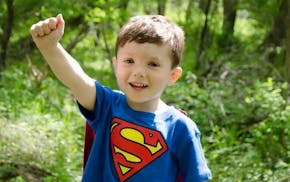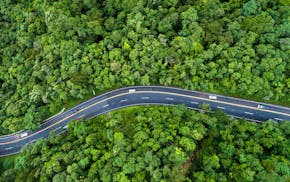Opinion editor's note: Star Tribune Opinion publishes a mix of national and local commentaries online and in print each day. To contribute, click here.
•••
One calamity needs no introduction: this week's "catastrophic implosion" of the Titanic-bound Titan submersible carrying five wealthy adventurers.
The other disaster at sea was mostly subsumed in submersible stories: this month's sinking of the Adriana, an 80- to 100-foot fishing boat crammed with up to 750 desperate refugees and migrants off the coast of Greece.
Several factors, including novelty and proximity, account for the coverage inequality. And then there's inequality itself, more than ever a defining feature of this era.
Indeed, like many aboard the Titanic, the Titan's manifest included men of means: Stockton Rush, an American descendant of two signers of the Declaration of Independence; Hamish Harding, a British businessman and explorer who had flown on a space mission with Jeff Bezos's Blue Origin company; Paul-Henri Nargeolet, whose company owns the salvage rights to the Titanic; and Shahzada Dawood, a British-Pakistani businessman from one of Pakistan's wealthiest families, along with his son Suleman.
Pakistanis from the opposite end of the socioeconomic spectrum were on the Adriana. More than 100 were lost, along with scores of Syrians and Egyptians, while a fortunate 104 migrants survived. About 81 bodies have been recovered, but hundreds more are believed to have sunk more than two miles to the sea floor, with "the ship's hold a tomb," according to the New York Times.
The number of children and their mothers presumably held in the Adriana's hold is particularly poignant. Sadly, such a fate is not new, said UNICEF's Global Chief of Migration and Displacement Verena Knaus. Speaking from Geneva, Knaus noted that the central Mediterranean is "the deadliest sea route in the world. It's basically a graveyard of children," with around 500 dying annually during daring journeys toward Greece, Italy and Turkey.
"We seem to be very comfortable ignoring it, politically speaking," Knaus starkly stated.
Regarding refugees and migrants, politics always seem to be at play, even if it plays with human lives. In Greece, the center-right New Democracy Party has wooed voters with a relatively hardline stance against migrants, and it's expected to win Sunday's national election despite controversy over the Greek Coast Guard's handling of the listing craft.
The Adriana's sinking "was, I almost would say, an expected tragedy in a context where we have seen the gradual acceptance of pushbacks at sea as a tool for migration management even though it breaks national, European and international law," Knaus said. Despite this, pushback on "pushback" policies has been inconsistent.
Overall, Knaus said, a "big driver" of dangerous, often deadly Mediterranean crossings "is the lack of ways [for migrants] to get through Europe to claim asylum or seek protection in a regular, safe and legal way." European governments, she added, "are creating the business for these smugglers who operate these boats because we're not having a serious conversation about refugee resettlement, legal pathways, humanitarian-parole programs and targeting countries where people need to flee."
And the number of people needing to flee is only increasing, according to a new U.N. report, which states that at the end of last year, 108.4 million people worldwide "were forcibly displaced as a result of persecution, conflict, violence, human rights violations and events seriously disturbing public order." That's a spike of 19 million, the largest annual jump the U.N. has tracked. Tragically, children account for 40% even though they represent 30% of the global population. And the total doesn't include those seeking escape from climate-change crises, a condition that is only expected to grow in future years.
The report's message, said John Thon Majok, director of the Refugee and Forced Displacement Initiative at the Wilson Center, "is that forced displacement is a growing global crisis that needs to be addressed collectively." The trends, he said, are dire and "beyond the level of any one country."
The migration crisis is truly transnational, and host countries are not just the Western ones where immigration is a potent political issue: 70% of those displaced escape to neighboring nations of the failing or flailing states, with 76% fleeing to low- and middle-income countries. The top three are Turkey (3.6 million displaced people), Iran (3.4 million) and Colombia (2.5 million). As a percentage of population, the top two countries are Aruba (one in six a displaced person) and Lebanon (one in seven).
That those fleeing and hosting countries are in areas already rife with strife may be another contributing factor to the enduring migration crisis being eclipsed in the news narrative. But the Ukraine crisis "has changed a lot of the way this is viewed, that this is a growing global problem that is not limited to any one country, and it can happen anywhere in the world," Majok said.
Referring to coverage of the Titan tragedy, Knaus said, "I find it a little hard to observe the sort of disproportionate attention to one type of maritime crisis." Acknowledging the dynamic's "many layers," she rhetorically asked: "How do we make stories of success more attractive so they also get coverage?" She continued that much of the migration reporting is "in context of crisis, conflict, disaster. But migration reporting rarely happens in the context of talent, opportunity, connectivity, so the real contributions of migrants and refugees in our societies goes unnoticed."
The Mediterranean maritime tragedy and the U.N. report, Majok said, "need to be a wake-up call for all of us to collectively address the root causes, but also to talk about displaced people as our fellow human beings, not as some people to be feared, because they are running in the first place from fear and persecution."
Often, he continued, "people just think this is just statistics. I think people need to know that refugees are people, not levels or numbers."
People like Majok himself, who fled South Sudan for refugee camps in Ethiopia and Kenya for 13 years before he immigrated to America. "The narrative from mainstream media of refugees as passive victims needs to change," he said. "These are humans, with human agency."
That's an ethos a nongovernmental agency, Minneapolis-based Alight, believes too, which led to the organization's 2019 name change from the American Refugee Committee, with the objective of "seeing [refugees] as the full, complex humans they are," said spokesperson Chris Kindler.
In the same way those on the Adriana, the Titan — and the Titanic itself — were full, complex humans, sadly lost to the sea.
Opinion: We must fight back against the Trump administration's attacks on free speech

'We're doing this for Gavin'
Vang: Why Minnesota should lead in banning AI nudification apps
